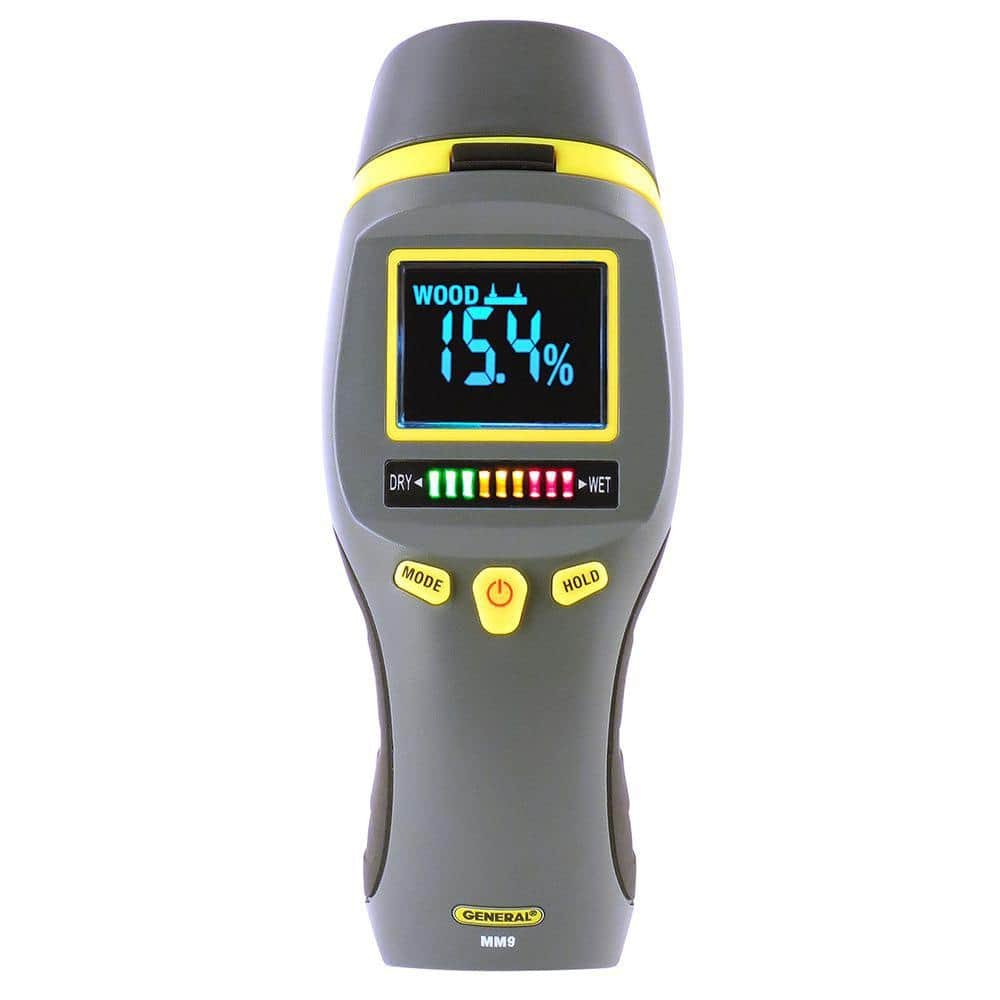The Ultimate Overview to Choosing the Right Moisture Meter for Your Needs
Wiki Article
The Ultimate Guide to Moisture Meters: A Comprehensive Review and Just How They Can Conserve You Money
Dampness meters serve as essential tools in identifying and keeping track of moisture web content in materials, helping in protecting against costly damages and making certain the quality of products. Understanding the nuances of various kinds of dampness meters, their applications, and the potential cost-saving benefits they supply can be a game-changer for professionals and companies alike.Sorts Of Dampness Meters
One common type is the pin-type dampness meter, which gauges the electric resistance in between 2 pins placed into a product. Pinless dampness meters, on the various other hand, use electro-magnetic sensor plates to check a larger area without causing damages to the product's surface.
Infrared moisture meters measure the thermal homes of a product to identify its dampness content non-invasively, making them beneficial for applications where pin or pinless meters may not be appropriate. Understanding the various types of wetness meters readily available can help industries choose the most proper device for their specific wetness dimension demands.

Advantages of Using Wetness Meters
Dampness meters offer indispensable benefits in precisely analyzing and monitoring moisture levels in varied products and atmospheres. One of the main advantages of making use of wetness meters is the prevention of prospective damage triggered by excess moisture.
In addition, utilizing wetness meters can result in enhanced energy performance. By determining areas with high moisture degrees, such as leaks or inadequate insulation, adjustments can be made to improve power preservation and minimize utility prices. In farming settings, wetness meters play a vital role in optimizing plant returns by allowing farmers to monitor dirt dampness levels and make informed irrigation choices. In general, the advantages of making use of wetness meters extend across numerous industries, supplying economical options and advertising far better high quality control practices.
Just How to Pick the Right Moisture Meter
Picking the proper wetness meter involves taking into consideration vital aspects such as product compatibility, measurement array, and calibration accuracy. When picking a dampness meter, it's necessary to guarantee that the meter appropriates for the details material you will be screening. Various materials have differing electrical properties that can affect wetness analyses, so choosing a meter developed for your material is essential for accurate outcomes. In addition, take into consideration the measurement array of the wetness meter. Ensure that the meter can discover moisture degrees within the variety required for your applications. Calibration precision is one more vital element to bear in mind. Opt for a dampness meter with dependable calibration to make certain regular and precise analyses. Some meters may need regular calibration changes, so recognizing the calibration process is essential. By very carefully reviewing these variables, you can pick a moisture meter that meets your requirements and provides precise moisture measurements for your projects.Correct Strategies for Wetness Meter Use

Cost Financial Savings Via Wetness Meter Applications
How can the critical application More hints of moisture meters lead to substantial cost financial savings across various markets? In the agriculture industry, moisture meters help in identifying the optimal time for gathering plants, stopping excess or over-drying dampness that can affect the final item's top quality.
Likewise, in construction, moisture meters help prevent expensive damages by detecting moisture levels in structure materials, such as wood or concrete, which can result in structural concerns otherwise resolved quickly. By determining trouble locations early, contractors can take restorative measures to stay clear of considerable repairs or substitutes, ultimately saving time and cash.
Additionally, in the food handling sector, moisture meters are necessary for keeping track of item top quality and making sure compliance with safety and security laws. By precisely gauging dampness web content in food, suppliers can sites prevent spoilage, keep freshness, and minimize waste, causing significant expense savings. Generally, the critical application of wetness meters is a valuable financial investment that can cause considerable expense decreases and enhanced effectiveness throughout numerous industries.
Conclusion
Finally, moisture meters are valuable devices for measuring and identifying wetness levels in different materials. By anchor utilizing the appropriate moisture meter and following appropriate methods, users can efficiently avoid pricey problems brought on by excess moisture. Investing in a top quality moisture meter can lead to significant expense financial savings in the long run by identifying potential problems beforehand and allowing punctual removal. Eventually, dampness meters are necessary tools for keeping the integrity and durability of frameworks and materials.Dampness meters serve as important devices in identifying and checking moisture content in products, helping in avoiding expensive damages and guaranteeing the top quality of products. Infrared moisture meters gauge the thermal properties of a material to identify its wetness content non-invasively, making them useful for applications where pin or pinless meters may not be ideal.Wetness meters use indispensable advantages in properly keeping track of and assessing dampness levels in diverse materials and atmospheres. In agricultural setups, wetness meters play an important function in enhancing plant returns by allowing farmers to check dirt wetness levels and make informed watering choices.In final thought, wetness meters are valuable devices for gauging and discovering moisture levels in different materials.
Report this wiki page